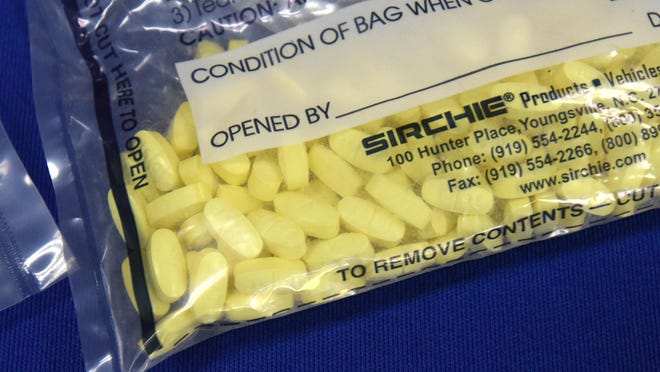State: Opioid prescriptions in Michigan declined in 2018
 Beth LeBlanc
Beth LeBlanc
Michigan doctors wrote 15% fewer opioid prescriptions in 2018 than the prior year, a development that correlates with physicians’ increased usage of the Michigan Automated Prescription Service, state officials said.
The number of Michigan prescribers participating in MAPS increased from roughly 29,000 to more than 68,000 from 2017 to 2018 while opioid prescriptions dropped from 9.6 million in 2017 to 8.2 million in 2018.
The program, which gives prescribers easier access to information regarding which drugs have been prescribed to patients and how often, has “played a critical role” in ensuring patient access to prescriptions while giving doctors a tool to identify and combat opioid abuse, Gov. Gretchen Whitmer said in a Tuesday statement.
“As leaders, we have a responsibility to help patients get the care they need and raise awareness on the opioid crisis and the damaging effects it has had on our families and our economy,” Whitmer said. “I’m eager to continue working with LARA to ensure the health and safety of people across the state.”
State law requires Michigan prescribers — including physicians, dentists, podiatrists and veterinarians — to register with MAPS if they prescribe Schedule 2 through Schedule 5 drugs and to check the system before prescribing a more than a three-day supply of the drugs.
In addition to the decrease in opioid prescriptions, Michigan also experienced a decrease in overall prescriptions for Schedule 2-5 drugs from 19.9 million in 2017 to 17.6 million in 2018.
Prescriptions for hydrocodone alone decreased roughly 21% while oxycodone prescriptions dropped 23%.
“This decrease demonstrates that we are on the right track and must remain committed to providing state-of-the-art resources to Michigan prescribers and dispensers,” said Orlene Hawks, director for Licensing and Regulatory Affairs.
The reported decrease in opioid prescriptions came a day after Whitmer announced roughly $1.3 million in grant funding for Munson Medical Center and Beaumont Hospital to increase medication-assisted treatment programs for opioid addiction.
The Wayne State University Center for Behavioral Health and Justice also will receive money to expand the use of medication-assisted treatment in Michigan jails.
In 2017, 2,053 Michigan residents died of opioid overdoes, a 13.8% increase from the previous year, according to the Michigan Department of Health and Human Services.
eleblanc@detroitnews.com
(517) 371-3661